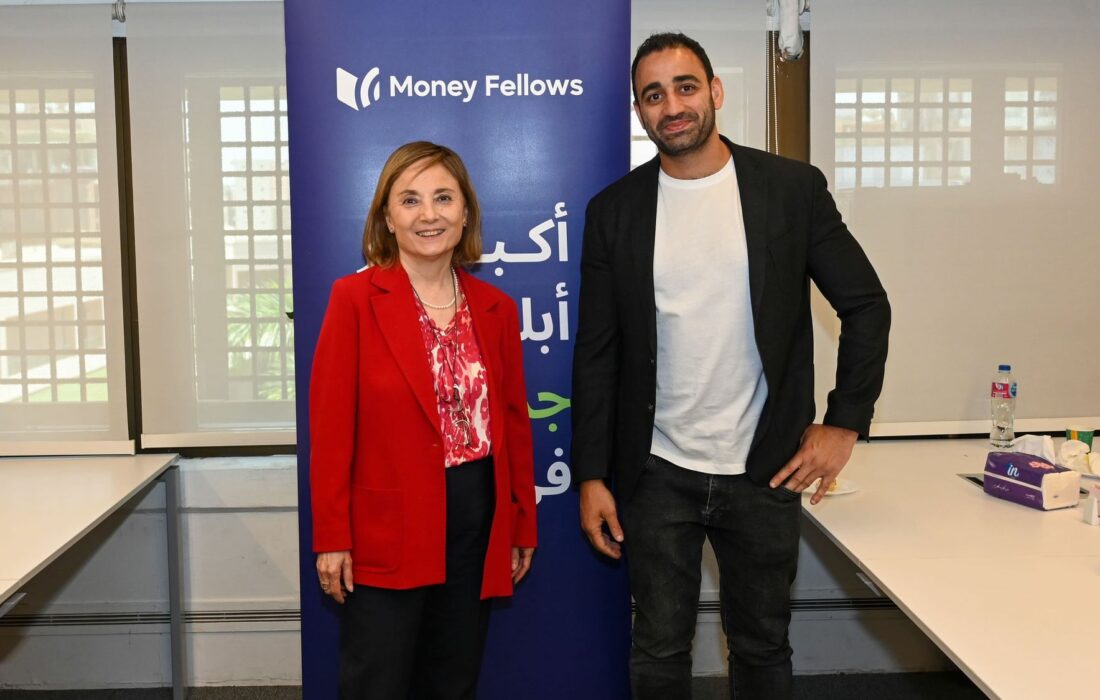Open banking is the coming tool among Fintech experts to bridge links with all fintech stakeholders; WAYA digs deeper to know more about the concept through its Q&A interview with one of the fintech entrepreneurs in the GCC : Abdulla Almoayed, Founder/CEO of Tarabut Gateway.
WAYA: Can you tell us more about the Open Banking concept: what is new, its impact on fintech, and its process?
Abdulla Almoayed: Open banking describes a new era of banking based on seamless data exchange and flow between banks, financial institutions, fintechs, and third-party service providers. The concept first emerged in the US and UK, and later Europe, albeit in different ways.
In the GCC, visionary regulators, such as SAMA of Saudi Arabia, the Central Bank of Bahrain, the Central Bank of the UAE, and the financial hubs of Dubai and Abu Dhabi, took the initiative to foster open banking. They implemented frameworks that encouraged banks to share their once-guarded data. Banks in the region have enthusiastically adopted open banking, recognizing its potential as a mutually beneficial advancement.
Open banking is the cornerstone of the entire fintech ecosystem. Tarabut Gateway’s solutions, like secure data sharing and open banking payments – enabled through secure APIs, or ‘data pipelines’ – in turn stimulate a multitude of fintech products to be created.
Let’s take the case of lending as an example to illustrate how open banking works. Open banking fundamentally transforms the traditionally complex lending process. In the past, applying for a loan was a laborious task, requiring the borrower to manually fill out paper forms and submit them to lenders. The lenders would then painstakingly verify the applicant’s financial history from various financial institutions, taking up significant time and resources.
With open banking, this cumbersome process is simplified and streamlined. Instead of filling out a physical form and waiting for the lender to manually verify their information, applicants can now complete a digital form in minutes. Leveraging open banking APIs, an automated system quickly retrieves relevant financial data from the applicant’s bank(s).
This comprehensive, real-time data enables the creation of a tailored loan offer in response to a few succinct questions, effectively removing the need for any intermediaries. Open banking not only accelerates the lending process, but also provides a seamless, personalized experience for customers, making loan applications more efficient and customer-friendly.
WAYA: As the startup is taking advantage of the “open banking’, so what is the value proposition delivered by you to the fintech market?
Abdulla Almoayed: At Tarabut Gateway, our core value proposition is to serve as the foundational infrastructure platform for the growing fintech ecosystem. By providing open banking APIs, we equip fintechs with the crucial financial data they require to construct their unique products. Essentially, we act as the bridging link between fintechs, banks, and third-party service providers, enabling these entities to build their offerings ‘on top’ of our platform.
Our suite of products, such as TG Connect, offers unified customer financial data through region-wide bank connectivity, fostering a more integrated and transparent financial landscape. Other offerings include TG Categorization, which enriches data for transaction auto-categorization, and TG Pay, which facilitates swift, direct, and cost-effective payments. Our TG Income Verification tool assists lenders in expediting loan application processes, just to mention a few.
We are particularly focused on lending solutions that empower lenders to optimize revenue and reduce costs. In turn, consumers can gain access to quick, customized, affordable loan options that cater to their individual financial needs. But our open banking technology also powers other use cases, such as personal finance management, bill payments, and account top-ups for digital wallets.
WAYA: Can you share more about your expansion plan and who are the actual customers you are seeking?
Abdulla Almoayed: Our mission is to partner with banks, lenders, fintechs, and other businesses to deliver open banking-powered solutions that address their specific challenges. For instance, in the realm of lending, we could help banks and lenders simplify and speed up their loan approval process by leveraging our open banking platform. This could allow for real-time income verification, reducing fraud risk and expediting decision-making. For fintechs, we could offer integrations with their apps to provide a seamless user experience, enabling users to access lending services directly from their platform. These problem-led solutions are designed to increase efficiency, reduce risk, and enhance the overall customer experience.
Currently, our operations extend across the Kingdom of Saudi Arabia, the UAE, and Bahrain. We are proactively monitoring regulatory developments in other jurisdictions within the MENA region, ready to introduce our open banking solutions in any regional country where regulations permit. This readiness underscores our dedication to serving our clients and our preparedness to support them in their growth journey.
WAYA: What will be the allocation plan for the investment?
The allocation plan for our $32 million Series A funding, led by Pinnacle Capital and including backers such as Aljazira Capital, Visa, and Tiger Global, among others, is designed to optimize growth and impact. A significant portion of our focus post-funding will be on expanding Tarabut Gateway’s presence in the Kingdom of Saudi Arabia, which boasts one of the fastest-growing fintech markets in the MENA region. We plan to invest in top-tier talent in the country, enhancing our local footprint and fostering robust relationships with fintechs and banks to capitalize on this remarkable opportunity.
Simultaneously, we aim to solidify our foothold in Bahrain and the UAE by extending our bank coverage and empowering more fintechs to design their solutions via our open banking API.
We are also committed to bringing our ambitious partnerships to fruition, like the recently announced cooperation with Visa – a key investor in our Series A funding. Our joint effort with Visa aims to revolutionize open banking in MENA through the development of innovative products and solutions that leverage open banking capabilities. Our immediate focus will be on devising data-driven services such as credit risk assessments, advanced analytics and insights. We also anticipate expanding into additional areas like cross-border payments and lending.
Finally, from a product perspective, we are particularly focused on lending solutions that empower lenders to optimize revenue and reduce costs. Our solutions help lenders streamline their application and underwriting processes and improve their credit decisions. This strategic allocation of funds is geared towards accelerating our growth, driving innovation, and deepening our impact across the region.
If you see something out of place or would like to contribute to this story, check out our Ethics and Policy section.














